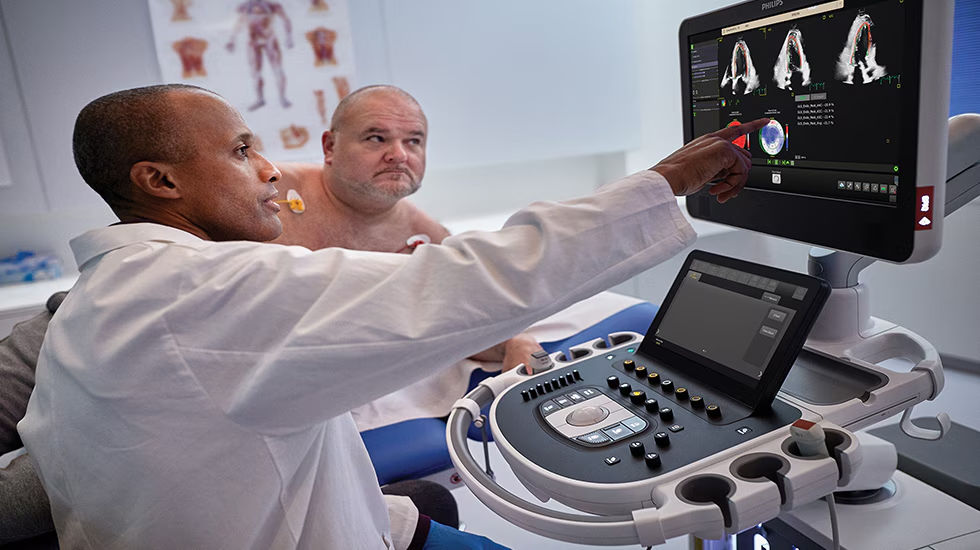Cardiology—the branch of medicine focused on heart health—has come a long way. From open-heart surgeries to minimally invasive procedures and now artificial intelligence (AI), the tools available to treat heart disease are smarter, faster, and more accurate than ever before.
In this article, we explore the latest innovations in cardiology—from traditional treatments like stents to cutting-edge technologies like AI diagnostics—and how they are transforming patient care and saving lives.
1. The Evolution of Heart Stents
A stent is a small mesh tube inserted into a blocked artery to help keep it open. It restores blood flow and prevents heart attacks.
🔧 Types of Stents:
- Bare-metal stents (BMS) – Early version; simple metal structure
- Drug-eluting stents (DES) – Coated with medication to prevent re-blockage
- Bioabsorbable stents – Designed to dissolve naturally over time
✅ Benefits of Stents:
- Minimally invasive procedure (angioplasty)
- Faster recovery compared to open-heart surgery
- Reduces chances of future blockages
2. Artificial Intelligence (AI) in Cardiology
AI is no longer just science fiction—it’s helping cardiologists make faster and more accurate diagnoses.
🧠 How AI Helps:
- Analyzes ECGs and ECHOs for hidden patterns
- Predicts heart attacks and strokes using historical data
- Assists in interpreting imaging scans like cardiac MRIs and CTs
- Detects atrial fibrillation (AFib) using wearable devices
📱 AI in Action:
Apps and smartwatches can now:
- Track irregular heartbeats
- Warn users about potential heart issues
- Share real-time data with doctors
3. Wearable Cardiac Monitors and Remote Monitoring
Devices like:
- Smartwatches (Apple Watch, Fitbit, etc.)
- Patch monitors (Zio Patch, Holter Monitors)
- Remote BP cuffs and pulse oximeters
These allow cardiologists to monitor heart rhythm, BP, and oxygen levels remotely, making care more personalized and proactive.
📊 Benefits:
- Early detection of arrhythmias
- Fewer hospital visits
- Peace of mind for patients with chronic heart conditions
4. Minimally Invasive Valve Replacement: TAVR
TAVR (Transcatheter Aortic Valve Replacement) is a game-changing technique used to replace a diseased aortic valve without open-heart surgery.
🏥 Key Advantages:
- Done through a catheter (usually via the leg)
- Less trauma and shorter recovery time
- Especially helpful for elderly or high-risk patients
5. 3D Imaging and Printing in Cardiology
Cardiologists now use 3D echocardiograms and 3D-printed heart models to:
- Visualize complex heart structures
- Plan surgeries with greater accuracy
- Educate patients about their condition
These tools have increased success rates and reduced surgical complications.
6. Robotic-Assisted Heart Procedures
Robotics allows for:
- High precision surgeries
- Steady instrument control
- Minimal hand tremors during delicate procedures
Used in stent placements, valve surgeries, and electrophysiology procedures, robotic systems improve outcomes and recovery time.
7. Personalized Heart Medications Through Genetic Testing
Pharmacogenomics is the science of using your DNA to determine which heart medications will work best for you.
Example:
- Patients with certain gene mutations may react poorly to common blood thinners like clopidogrel. Genetic testing helps select safer alternatives.
Comparison Table: Traditional vs Modern Cardiology Tools
| Feature | Traditional Cardiology | Modern Cardiology Technology |
|---|---|---|
| Diagnosis | ECG, X-ray, stress tests | AI-powered imaging, wearables |
| Treatments | Open-heart surgery, BMS | TAVR, DES, robotic surgeries |
| Monitoring | In-clinic checkups | Remote monitoring & smart devices |
| Decision-Making | Doctor’s judgment | AI + predictive analytics |
| Medication Customization | Standard prescriptions | DNA-based personalized medications |
8. AI-Powered Prediction Tools
New software tools powered by AI can:
- Predict risk of heart attack up to 5 years in advance
- Flag early signs of congestive heart failure
- Recommend individualized lifestyle plans
This gives doctors a powerful early warning system, often before symptoms even appear.
9. Regenerative Cardiology: The Future Frontier
Researchers are working on:
- Stem cell therapy to regrow damaged heart tissue
- Tissue engineering to create heart patches
- Gene editing (CRISPR) to fix inherited heart conditions
While still under study, these breakthroughs could reverse heart damage in the future.
Conclusion: A New Era of Heart Care
Modern cardiology is moving rapidly toward precision medicine—care that’s personalized, proactive, and powered by technology. From life-saving stents to AI-powered diagnoses, these innovations are not only extending life but also improving the quality of life for millions of heart patients.
Whether you’re managing a heart condition or just keeping an eye on your heart health, it’s clear: the future of cardiology is smarter, safer, and more human-centered than ever before.

